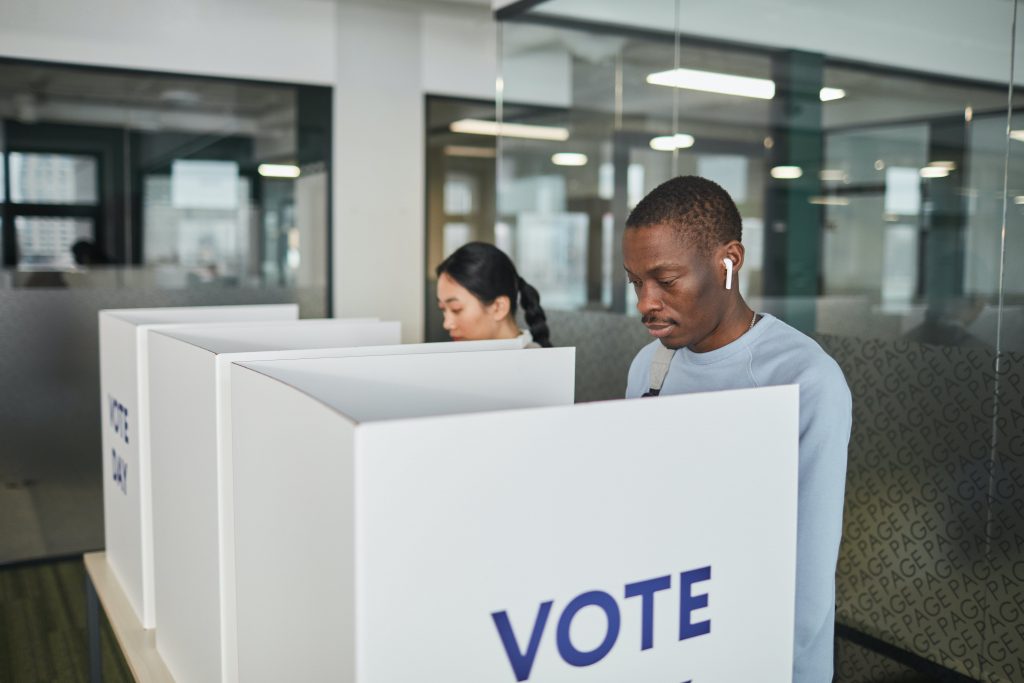College students are the largest registered group in America; why don’t they vote?
Unpacking the low voter turnout from college students
Voting organizations and colleges aim to bridge the divide and challenges young adults face in the voting process.

College students are the next generation of voters. They are the most registered group in America, but they don’t always make it to the polls.
According to the US Census, college students register at an 82% rate, while the rest of the United States is registered at a 66.7% rate. But only 66% of college students voted in 2020, resulting in a voter yield rate far below the national average.
“We always want campuses to focus on the fact that the registration rate is not the issue,” program manager at for National Study of Learning, Voting and Engagement Duy Trinh said. “It’s the gap of those who registered, but don’t turn out to vote.”
According to Trinh, many college students revealed that they refrain from voting because “they were not interested in the issues, they don’t have enough time, or are too busy.”
For many college students, acquiring ballots when attending school outside of their home state poses challenges in the voting process.
Christopher Davis, a magazine, news and digital journalism and economics student from Baltimore said that the “2024 election will be very exciting.” But when asked if he had a plan for voting he responded, “I don’t have a plan yet.”
Davis noted the complexities of voting out of state, particularly through mail-in ballots, expressing concerns about trust in the counting process.
"How can I trust that my vote is going to be counted?” he said.
Although Davis seemingly had doubts about the usage of mail-in ballots, he found the process to be "pretty simple and easy. It only took me about five minutes,” he said. Davis represents one of the four out of five college students that are registered to vote.
“We partner with the National Student Clearinghouse...About 95% of campuses and higher ed institutions participate in the National Student Clearinghouse," Trinh explained NLSVE's data collection methods. "So this is a huge database.”
In the state of Maryland, the board of elections requires a driver’s license number, ID number or Learner’s Permit number to sign up for a mail-in ballot online.
While common, this requirement poses difficulties for students who lack access to multiple forms of identification, contributing to the disparity in college voter turnout.
Campus Vote Project is an organization committed to combating the discrepancy between college student registration numbers and their voting numbers.
Chairman Roy Thorson is a graduate student at University of Wisconsin Stevens Point. Thorson says he is committed to "making it easier for students to vote."
Currently, Thorson is working on legislation to make voting more appealing to college students, like making election day a campus holiday and making the voting infrastructure easier for students.
"Registration doesn't help if people don't show up to the polls," he said. "The registration is the part that is very easy for us to do."
The challenge lies in ensuring that elections matter to students beyond the initial registration phase.
“Without the follow through of making these elections
matter to people, it doesn't have the impact we're looking for,” Thorson explained.
For students like Henry Pilon, a freshman architecture student at SU from Virginia, challenges in navigating online resources can deter them from seeking information about registration and voting.
“I couldn’t find the right website, it was like the seventh link," Pilon said on his efforts to register.
Many college students are unaware of the resources they have access to in order to help them vote, Thorson says. The Campus Vote Project prioritizes providing voters with helpful information leading up to election season.
The efforts that campuses and organizations are taking to increase student voting is helping as both registration and voter turnout rates have increased over the past few elections.
“Based on trends of the past decades, we hope [voting] is going to go up," Trinh said.
Thorson recommends students who plan to vote in upcoming elections “make a plan and make it early,” and for each student to “find a reason that's important.”
“Voting is foundational for our country and for the lives that you and I live every day,” Thorson said.
